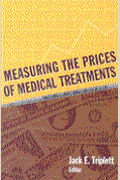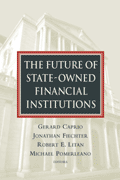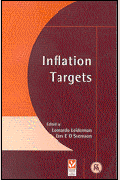What’s the latest thinking in fiscal and monetary policy? The Hutchins Roundup keeps you informed of the latest research, charts, and speeches. Want to receive the Hutchins Roundup as an email? Sign up here to get it in your inbox every Thursday.
Firms tend to be more attentive to monetary policy during periods of high inflation
Using survey data from firms across different countries, Bernardo Candia and Yuriy Gorodnichenko of the University of California, Berkeley, and Olivier Coibion of the University of Texas at Austin find that firms’ inflation expectations deviate significantly from those of professional forecasters and that there is little consensus among firms about future inflation. Specifically, firms’ expectations of prices over the long run are highly correlated with their forecasts for the short term, the authors find, suggesting that their beliefs are not well-anchored to central bank inflation targets. When firms are in high inflation environments, however, (such as India or Uruguay in recent years, or the U.S. in the early 1980s), they tend to be more attentive to macroeconomic data and policy objectives, likely because not knowing about inflation is more costly in such environments, the authors suggest. The authors also find that accounting for firms’ inflation expectations results in a stronger negative relationship between inflation rates and labor market slack. The results imply that knowledge of firms’ macroeconomic expectations “can be helpful to policy-making, where expectations are central, as well as to inform theory,” the authors conclude.
Case study of actual cyberattack underscores the importance of financial system preparations
Cyberattacks are of increasing concern to financial system regulators, including the Federal Reserve and European Central Bank. But how well is our current system equipped to mitigate the effects of such an attack? Antonis Kotidis and Stacy Schreft of the Federal Reserve Board study the impact of a multi-day cyberattack on a technology service provider on the more than 50 banks, credit unions, and other financial institutions that were affected. The cyberattack complicated the institutions’ ability to send payments over Fedwire, a Fed network used to settle payments, but deadline extensions from the Fed allowed them to figure out alternative processes to eventually access the network. Still, payments from these institutions fell 26.5%, leading to second-round effects on the institutions receiving lower-than-expected payments. But these institutions either had sufficient reserves or used the Federal Reserve’s discount window to fulfill their obligations. The authors conclude that alternative processes for accessing Fedwire, the liquidity buffers held by the institutions, the discount window, and the Fed’s extension of loan deadlines prevented the cyberattack from further spillover effects. Without these policies, the effect of the cyberattack would have been more pronounced, they say.
Hysteresis effects may be limited
Luca Benati of the University of Bern and Thomas A. Lubik of the Richmond Fed find that hysteresis — defined as aggregate demand shocks with a permanent impact on GDP — has been virtually absent in the U.S. during the post-WWII period, aside from the years following the Global Financial Crisis and Great Recession. During this 2008-2019 period, the authors estimate that hysteresis shocks accounted for around 10% of the long-run variance of GDP. They conclude that hysteresis primarily operates during periods of extreme economic stress, consistent with evidence of labor market scarring during the Great Recession that diminished the economy’s productive capacity.
Chart of the Week: UK inflation overtakes US inflation
Quote of the week:
“Inflation clearly is a concern in many parts of the world, in the United States, in the UK, and in in the rest of Europe as well and clearly, higher energy prices, higher food prices and other commodity prices, are really due to Putin’s choice to launch a war against Ukraine … And we understood… that we would not be able to shield ourselves entirely from the economic consequences… As we consider what sanctions packages to adopt, we want to have the maximum impact we can on Russia — [that is,] the maximum negative impact [in order] to degrade their ability to wage war now and project power in the years ahead—and to minimize the negative spillovers to ourselves. As we contemplate energy sanctions and other sanctions, this is always the core of the conversations that we’ve had,” says Treasury Secretary Janet Yellen.
“The European Union has made clear that they intend to end oil imports by the end of this year. That gives a significant amount of time to make sure that it can be done in an orderly way, and so that there won’t be price spikes associated with it. In the meantime, discussions are ongoing. All of us share the objective of diminishing the revenues that Russia will have to buy goods and services that will help their economy and enable them to wage war. We’re doing a lot of things that are effective in diminishing their access to the goods and services that they need.”
The Brookings Institution is financed through the support of a diverse array of foundations, corporations, governments, individuals, as well as an endowment. A list of donors can be found in our annual reports published online here. The findings, interpretations, and conclusions in this report are solely those of its author(s) and are not influenced by any donation.












Commentary
Hutchins Roundup: High inflation, spillovers from cyberattacks, and more
May 19, 2022